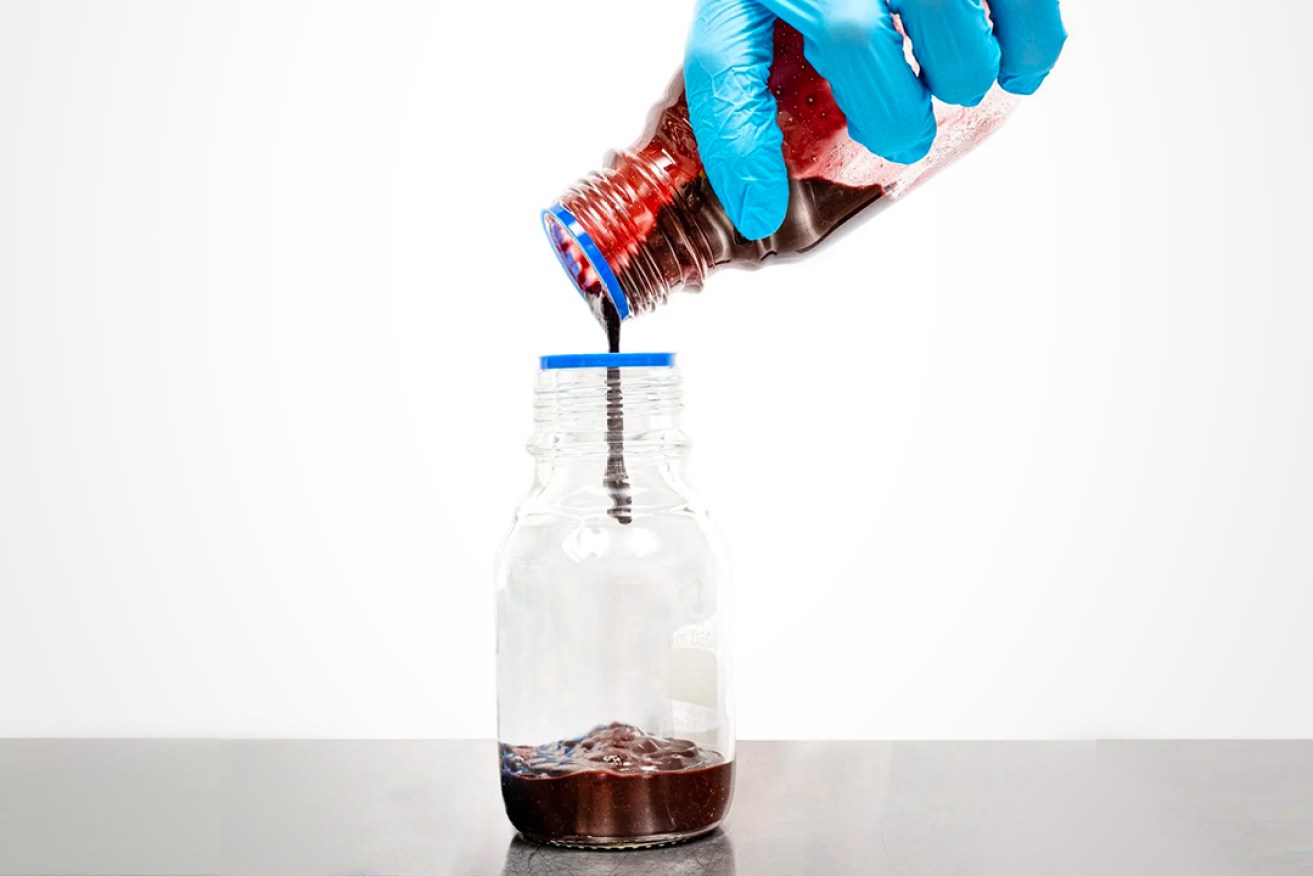Algae ‘blood’ breakthrough for meat-free barbies
Plant-based “meat” that looks and cooks like the red-blooded alternative could soon be sizzling worldwide due an Australian algae breakthrough.

Provectus Algae's bio-manufactured pigment is said to mimic blood in cooking plant-based meat alternatives. Photo: AAP/supplied
As the Australian marine bioproducts industry heads for $1 billion in annual turnover by 2030, a bio-manufactured pigment dreamed up by Provectus Algae founder Nusqe Spanton is the latest potential ingredient for sustainable food.
The uninspiring appearance – on the shelf and when cooked – is one of the biggest problems for alternative protein companies that want more people to eat sustainably.
“The vast majority of red colourings available on the market don’t actually change colour when you cook them,” Spanton told AAP.
“In order to make it look and feel and taste like meat does, we had to develop a product that specifically mimics blood.”
Provectus is growing the microalgae pigment at a Noosa-based facility in Queensland as global food manufacturers compete for health-conscious consumers.
“It not only has to look the part, when you cook it there’s a particular emotional reaction that happens, not only in the taste and flavour and smell that occurs, but also in cooking through to a grey-brown colour the same as natural meat,” he said.
“That’s a very difficult performance characteristic to mimic – that’s what we set out to solve.”
The algae can perform in a way that no other option can, according to the aquaculture expert, who uses precision photosynthesis to develop the natural product with no genetic modification.
“That would also drive a significant environmental and climate impact, if we were able to increase the overall consumption of plant-based burgers or plant-based meats,” Spanton said.
The single-cell algae grow by absorbing light and consuming carbon dioxide, and are among the world’s oldest microbes.
Spanton was awarded $525,000 on Tuesday by a federal fund and is also attracting private investors to meet international demand for the product.
Provectus is one of the final six recipients from the Advanced Manufacturing Growth Centre’s $30 million commercialisation fund that has fast-tracked more than 60 Australian start-ups across the economy.
-AAP




